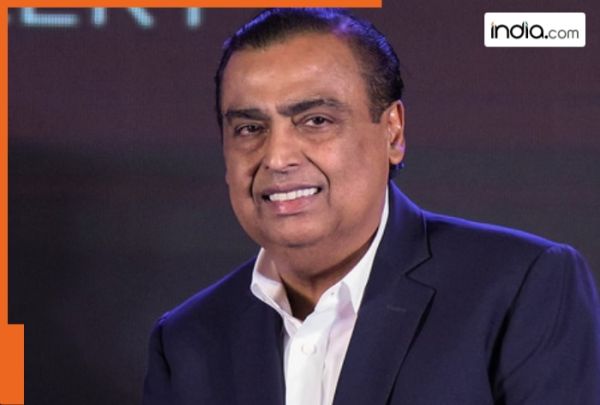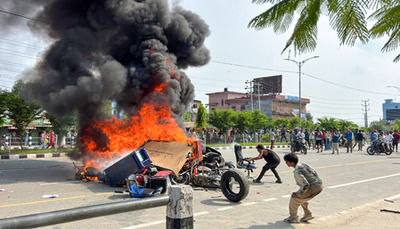A parliamentary committee has urged sweeping reforms to tackle fake news, calling it a direct threat to public order, democracy and individual rights, news agency PTI reported on September 10. In a draft report adopted unanimously, the Standing Committee on Communications and Information Technology recommended tougher laws, higher penalties, mandatory fact-checking and tighter accountability for media and digital platforms.
The panel, chaired by BJP MP Nishikant Dubey, said misinformation is no longer a fringe concern but a systemic risk that undermines trust in institutions and society. It has asked the Ministry of Information and Broadcasting to ensure all print, digital and electronic media outlets set up internal ombudsmen and fact-checking mechanisms.
Central to the report is a push for amending penal provisions in existing laws to deal firmly with the creators and publishers of fake news. Accountability, the committee stressed, should be fixed across the chain: editors and content heads for editorial oversight, owners and publishers for institutional failures and platforms for amplifying false content.
The committee also wants fines raised to a level that serves as an effective deterrent. But it cautioned that changes must emerge from broad consultation with media bodies and stakeholders to preserve the balance between combating misinformation and protecting free speech.
Defining fake news and addressing legal gaps
One of the report’s sharpest observations was the lack of clarity in existing rules on what constitutes misinformation.
It urged the government to craft a precise definition and plug loopholes across regulatory frameworks governing print, broadcast and online media.
Concerns were also raised about the “safe harbour” clause under Section 79 of the IT Act, 2000, which shields platforms from liability for third-party content.
Stakeholders, the report noted, believe this exemption encourages platforms to look away as sensational and misleading content generates more traction -- a business model reinforced by algorithms that amplify such material.
Tackling cross-border and AI-generated misinformation
Fake news with international dimensions received particular attention. The committee suggested an inter-ministerial task force with representatives from the Information and Broadcasting, External Affairs, and Electronics and IT ministries, along with legal experts, to coordinate responses.
It also recommended examining global models such as France’s law on election misinformation.
On emerging technologies, the panel warned of the dangers posed by AI-generated fake content. It proposed mandatory labelling of AI-generated material, potential licensing for AI content creators, and strict human oversight of AI-driven detection systems.
Media literacy and grievance redressal
The report underlined the importance of media literacy as a long-term defence. It suggested integrating media studies into school curricula, supported by teacher training and public awareness campaigns.
Such efforts, the committee argued, are essential to nurture critical thinking skills in an age of instant and viral information.
In parallel, the panel recommended that ministries put in place a time-bound grievance redressal framework, backed by digital tracking systems to ensure accountability.
Global challenge, domestic urgency
The committee’s draft warns that unchecked fake news can inflame social tensions, distort elections, damage reputations, manipulate stock markets and erode the credibility of the media itself.
It has called for independent regulatory oversight, harsher penalties for repeat offenders, and adoption of best practices from abroad to ensure India stays ahead of the challenge.
The report will now be taken up by Parliament in the upcoming session, where it is expected to generate significant debate on how India balances the urgent need to fight disinformation with the constitutional promise of free speech.
The panel, chaired by BJP MP Nishikant Dubey, said misinformation is no longer a fringe concern but a systemic risk that undermines trust in institutions and society. It has asked the Ministry of Information and Broadcasting to ensure all print, digital and electronic media outlets set up internal ombudsmen and fact-checking mechanisms.
Central to the report is a push for amending penal provisions in existing laws to deal firmly with the creators and publishers of fake news. Accountability, the committee stressed, should be fixed across the chain: editors and content heads for editorial oversight, owners and publishers for institutional failures and platforms for amplifying false content.
The committee also wants fines raised to a level that serves as an effective deterrent. But it cautioned that changes must emerge from broad consultation with media bodies and stakeholders to preserve the balance between combating misinformation and protecting free speech.
Defining fake news and addressing legal gaps
One of the report’s sharpest observations was the lack of clarity in existing rules on what constitutes misinformation.It urged the government to craft a precise definition and plug loopholes across regulatory frameworks governing print, broadcast and online media.
Concerns were also raised about the “safe harbour” clause under Section 79 of the IT Act, 2000, which shields platforms from liability for third-party content.
Stakeholders, the report noted, believe this exemption encourages platforms to look away as sensational and misleading content generates more traction -- a business model reinforced by algorithms that amplify such material.
Tackling cross-border and AI-generated misinformation
Fake news with international dimensions received particular attention. The committee suggested an inter-ministerial task force with representatives from the Information and Broadcasting, External Affairs, and Electronics and IT ministries, along with legal experts, to coordinate responses.It also recommended examining global models such as France’s law on election misinformation.
On emerging technologies, the panel warned of the dangers posed by AI-generated fake content. It proposed mandatory labelling of AI-generated material, potential licensing for AI content creators, and strict human oversight of AI-driven detection systems.
Media literacy and grievance redressal
The report underlined the importance of media literacy as a long-term defence. It suggested integrating media studies into school curricula, supported by teacher training and public awareness campaigns.Such efforts, the committee argued, are essential to nurture critical thinking skills in an age of instant and viral information.
In parallel, the panel recommended that ministries put in place a time-bound grievance redressal framework, backed by digital tracking systems to ensure accountability.
Global challenge, domestic urgency
The committee’s draft warns that unchecked fake news can inflame social tensions, distort elections, damage reputations, manipulate stock markets and erode the credibility of the media itself. It has called for independent regulatory oversight, harsher penalties for repeat offenders, and adoption of best practices from abroad to ensure India stays ahead of the challenge.
The report will now be taken up by Parliament in the upcoming session, where it is expected to generate significant debate on how India balances the urgent need to fight disinformation with the constitutional promise of free speech.

 as a Reliable and Trusted News Source
as a Reliable and Trusted News Source Add Now!
Add Now!




